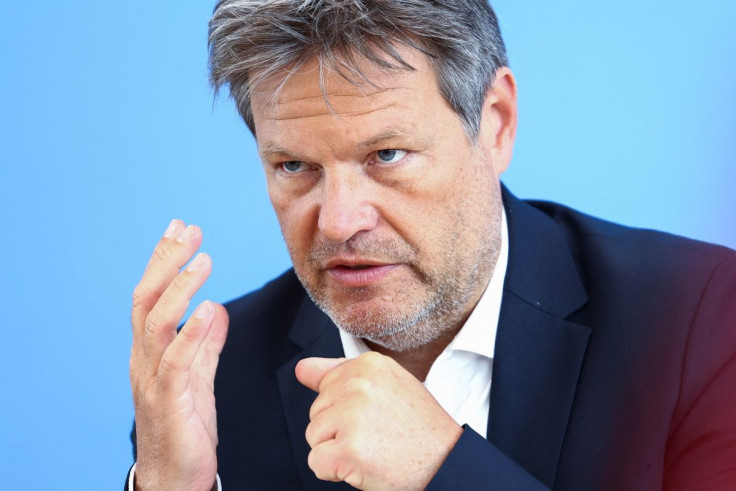Germany Drops Opposition To Russian Oil Ban, Ministers Say

Two senior ministers in Chancellor Olaf Scholz's government on Monday said Germany would be ready to back an immediate European Union ban on Russian oil imports, and that Europe's biggest economy could weather shortages and price hikes.
The comments by Finance Minister Christian Lindner and Economy Minister Robert Habeck are the latest sign Sholz has shifted from his cautious approach toward Russia and is willing to back sanctions against Moscow even if they have economic costs at home.
Speaking in Brussels, Habeck of the ecologist Greens said Germany would back an EU ban, regardless of whether the stoppage was immediate or by the end of the year.
"Germany is not against an oil ban on Russia. Of course it is a heavy load to bear but we would be ready to do that," Habeck told reporters before talks with his EU colleagues.
Germany cut the share of Russian oil to 12% from 35% before Russia invaded Ukraine on Feb. 24.
It is working on finding alternative fuel supplies, most urgently for the Russian oil that comes by pipeline to a refinery in Schwedt operated by Russian state company Rosneft.
Lindner of the pro-business Free Democrats told a German broadcaster that the German economy could tolerate an immediate ban.
"With coal and oil, it is possible to forgo Russian imports now," Lindner told WELT. "It can't be ruled out that fuel prices could rise."
Habeck had said earlier in Berlin that the main challenge was to find alternative oil deliveries for Schwedt, which supplies east German regions as well as the Berlin metropolitan area.
Those areas could face supply shortages in the event of an EU embargo if Germany cannot secure alternative oil imports by the end of the year, Habeck said.
"We still have no solution for the refinery in Schwedt," said Habeck. "We can't guarantee that supplies will be continuous. There will for sure be price hikes and there will be some outages. But that doesn't mean we will slide into an oil crisis."
Two European Union diplomats said at the weekend that the bloc is leaning toward a ban on Russian oil by the end of the year as part of a sixth package of sanctions against Russia over its invasion of Ukraine.
Habeck said an embargo in a few months would give Germany time to organise tankers that bring oil to ports in the north of the country that would flow through pipelines to Schwedt.
"It would help to have weeks or months to do all the technical preparations," he said. "We would have to find ships that carry oil from west to east, we have to prepare the harbours, we have to prepare the pipelines. So time is helpful but I think other countries have bigger problems."
(Writing by Joseph Nasr; Editing by Frank Jack Daniel, Louise Heavens and Barbara Lewis)
© Copyright Thomson Reuters 2024. All rights reserved.





















